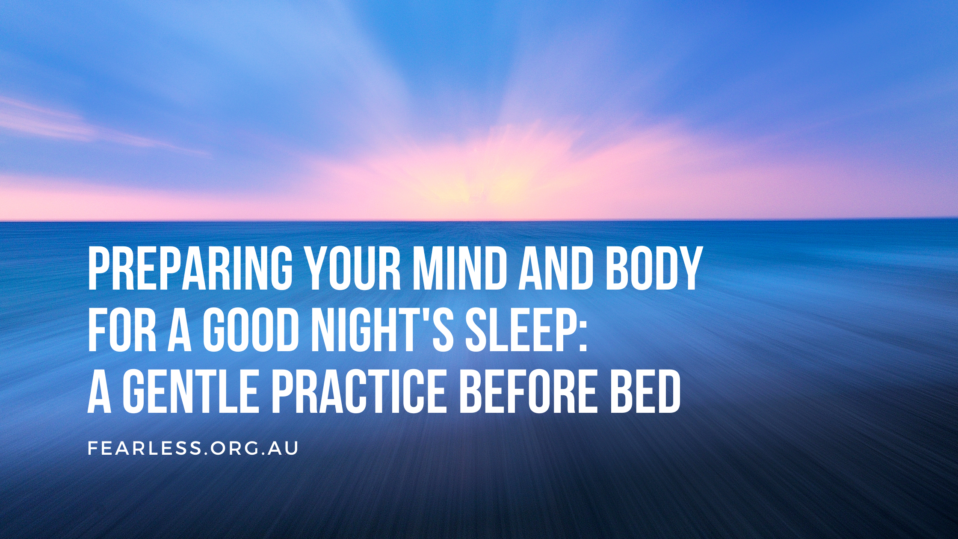In today’s fast-paced world, it is often challenging to wind down and relax before bed. However, it is crucial to create a calming environment for your mind and body to prepare for a restful night’s sleep. A gentle practice before bed can help you release the stresses of the day and transition to a state of rest and relaxation.
From an educational perspective, research suggests that practicing relaxation techniques before bed can improve the quality and duration of sleep. According to a study published in the Journal of Clinical Sleep Medicine, relaxation techniques such as progressive muscle relaxation, guided imagery, and deep breathing can improve sleep quality, reduce the time it takes to fall asleep, and decrease the number of nighttime awakenings.
Moreover, practicing relaxation techniques before bed can also have psychological benefits. It can help reduce anxiety and stress levels, promote emotional regulation, and increase feelings of well-being. By incorporating a gentle practice into your bedtime routine, you can create a positive and calming experience that can enhance your overall mental and emotional health.
Here is a simple and effective gentle practice that you can try before bed:
- Find a comfortable position: Sit or lie down in a comfortable position. Ensure that you are warm, and your body is supported.
- Relax your body: Take a few deep breaths and scan your body for any tension. As you exhale, release any tension you feel in your muscles, starting from your feet and working your way up to your head.
- Focus on your breath: Bring your attention to your breath. Inhale deeply through your nose, filling your lungs with air, and exhale slowly through your mouth, releasing any tension.
- Visualize a peaceful scene: Visualize a peaceful and relaxing scene. This could be a beach, a forest, or any other calming environment that makes you feel peaceful and relaxed. Focus on the details of the scene and try to imagine yourself there.
- Practice gratitude: Take a few moments to reflect on the positive aspects of your day. Think about the things you are grateful for and try to cultivate a sense of appreciation and contentment.
By incorporating this gentle practice into your bedtime routine, you can promote relaxation, reduce stress and anxiety, and prepare your mind and body for a restful night’s sleep. Remember to be consistent and patient in your practice, and allow yourself to fully embrace the present moment. With time, you may notice a significant improvement in the quality of your sleep and overall well-being.
About FearLess
FearLess is a charity that works with people living with the consequences of post traumatic stress (often referred to as PTSD). We also help family members in any way affected by it. Our community members come from all walks of life including those living with PTSD and their families or people who want to do their bit to make the lives of people living with post traumatic stress more enjoyable and fulfilling. Our work complements the activities of other community-based organisations and government agencies that provide services to people with post traumatic stress.
This website has been established to provide information about PTSD to the Australian and New Zealand community. The website’s content is not intended to be a substitute for professional medical advice, diagnosis or treatment. You should seek the advice of an appropriately qualified healthcare professional before making decisions about your own circumstances. You should not disregard professional medical advice, or delay seeking it, because of any information contained on this website.



Post a comment